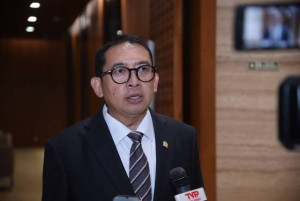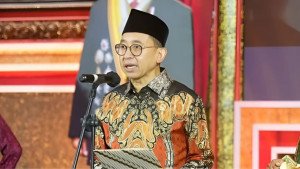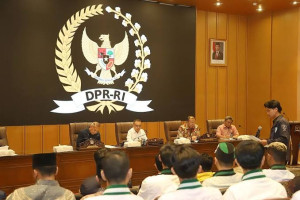Legislators grill Culture Minister over 1998 sexual violence remarks
A House of Representatives (DPR) hearing on July 2, 2025, saw a heated verbal clash between PDI-P lawmaker Mercy Chriesty Barends and Culture Minister Fadli Zon over the minister’s controversial comments denying mass rapes during the 1998 riots.
Mercy, a member of House Commission X and a former investigator for the Joint Fact-Finding Team (TGPF) on the 1998 tragedy, accused Fadli of undermining the experiences of victims and the credibility of past investigations.
"If we talk about the 1998 mass rapes, it hurts. I was part of the team that documented testimonies from victims," Mercy said during the hearing.
She asked the minister to visit the National Commission on Violence Against Women (Komnas Perempuan) to review its archive of reports, and demanded that Fadli apologize for his remarks, which she said disrespected victims and humanitarian activists.
In response, Fadli Zon clarified that his comments were not intended to deny historical facts but to encourage a more "positive tone" in historical narratives. He emphasized the importance of highlighting national unity rather than focusing solely on divisive events.
“Our goal is not to forget history, but to ensure that it serves as a constructive lesson,” Fadli said.
“I am not denying what happened. I strongly condemn it. But when we use terms like ‘mass rape,’ we must consider the legal and historical implications. The term implies a systematic and structured act, like what happened in Nanjing or Bosnia,” he cited.
Fadli acknowledged the existence of victims and said that he supports lawful documentation and recognition of their suffering. However, he maintained that historical writing should avoid narratives that could reignite ethnic or religious tensions.
The controversy did not end there. Fellow Commission X member and historian Bonnie Triyana raised concerns about potential conflicts of interest in the national history writing project, particularly the dual role of Susanto Juhdi, who serves as both an editor of the current historical text and a previous editor of the controversial “Kamus Sejarah”.
“I think that is part of the problem,” Bonnie said, questioning the integrity of the editorial process under the Ministry of Culture’s oversight.
Fadli responded by distancing himself from direct editorial decisions, saying he did not intervene in the content or personnel selections.
“Please ask the historians themselves if I intervened. Even when it comes to terms like 'Orde Lama', I asked whether such a term even existed at that time,” he said, referring to the Soekarno-era governance.
He reiterated that the goal of the new historical narrative was to present Indonesia’s achievements such as the Asia-Africa Conference as part of a broader, more balanced portrayal of the nation's past.
Already have an account? Sign In
-
Start reading
Freemium
-
Monthly Subscription
20% OFF$29.75
$37.19/MonthCancel anytime
This offer is open to all new subscribers!
Subscribe now -
Yearly Subscription
33% OFF$228.13
$340.5/YearCancel anytime
This offer is open to all new subscribers!
Subscribe now






